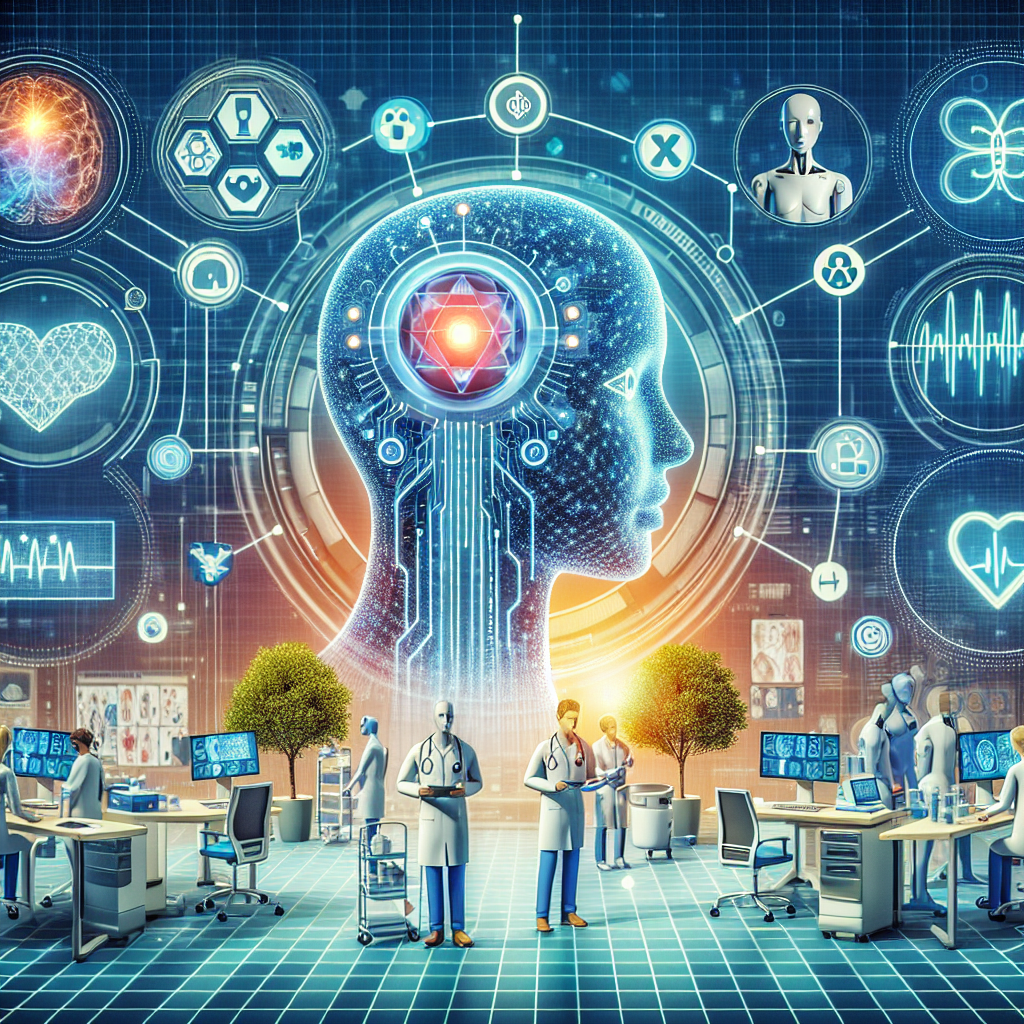In recent years, the healthcare industry has seen a significant increase in the use of artificial intelligence (AI) to enhance the continuity of care for patients. AI technologies are being utilized in various ways to improve patient outcomes, streamline processes, and provide more personalized and efficient healthcare services. From predictive analytics to virtual assistants, AI is revolutionizing the way healthcare providers deliver care to patients. In this article, we will explore how AI is enhancing healthcare continuity of care and address some frequently asked questions about this emerging technology.
One of the key ways in which AI is improving healthcare continuity of care is through predictive analytics. By analyzing large amounts of data, AI algorithms can predict potential health issues before they arise, allowing healthcare providers to intervene early and prevent complications. For example, AI can analyze a patient’s medical history, lab results, and other relevant data to identify patterns and trends that may indicate an increased risk of developing a certain condition. This information can then be used to create personalized care plans that are tailored to the individual needs of each patient, improving outcomes and reducing the likelihood of hospital readmissions.
Another way in which AI is enhancing healthcare continuity of care is through virtual assistants. These AI-powered tools can provide patients with real-time information and support, helping them manage their health more effectively. Virtual assistants can answer questions, provide medication reminders, schedule appointments, and even offer emotional support to patients in need. By offering round-the-clock assistance, virtual assistants can help patients stay on track with their treatment plans and follow-up care, ultimately leading to better health outcomes and improved continuity of care.
AI is also being used to streamline administrative processes in healthcare, making it easier for providers to access and share information about their patients. For example, AI-powered electronic health record (EHR) systems can automatically update patient records, alert providers to potential issues, and facilitate communication between different healthcare providers involved in a patient’s care. By automating these tasks, AI can reduce the risk of errors and delays in care delivery, ensuring that patients receive the right treatment at the right time.
Additionally, AI is helping to improve the accuracy and efficiency of diagnostic processes in healthcare. By analyzing medical images, lab results, and other diagnostic data, AI algorithms can help healthcare providers identify potential health issues more quickly and accurately. This can lead to earlier detection of diseases, more targeted treatments, and better outcomes for patients. AI can also assist in the development of personalized treatment plans, taking into account a patient’s unique genetic makeup, lifestyle factors, and other relevant information to optimize care delivery.
Overall, AI is revolutionizing the way healthcare providers deliver care to patients, enhancing continuity of care and improving patient outcomes. By leveraging the power of AI technologies, healthcare organizations can streamline processes, personalize care plans, and ensure that patients receive the right treatment at the right time. As AI continues to evolve and advance, its impact on healthcare continuity of care is only expected to grow, leading to a more efficient, effective, and patient-centered healthcare system.
Frequently Asked Questions about AI in Healthcare Continuity of Care:
Q: How does AI improve patient outcomes in healthcare?
A: AI can help improve patient outcomes by analyzing large amounts of data to identify patterns and trends that may indicate health issues, providing personalized care plans tailored to individual patient needs, and facilitating early intervention to prevent complications.
Q: How can AI be used to enhance continuity of care for patients?
A: AI technologies such as predictive analytics, virtual assistants, and automated EHR systems can help healthcare providers deliver more personalized, efficient, and effective care to patients, ensuring that they receive the right treatment at the right time.
Q: What are some examples of AI applications in healthcare continuity of care?
A: Some examples of AI applications in healthcare continuity of care include predictive analytics for early detection of health issues, virtual assistants for patient support and education, and automated EHR systems for streamlined communication and information sharing among healthcare providers.
Q: Is AI replacing healthcare providers in the delivery of care?
A: AI is not replacing healthcare providers but rather augmenting their capabilities and improving the efficiency and effectiveness of care delivery. Healthcare providers will continue to play a critical role in patient care, with AI technologies serving as tools to support and enhance their work.
Q: What are some potential challenges and limitations of AI in healthcare continuity of care?
A: Some potential challenges and limitations of AI in healthcare continuity of care include data privacy and security concerns, ethical considerations around AI decision-making, and the need for ongoing training and education for healthcare providers to effectively use AI technologies.
In conclusion, AI is transforming the healthcare industry and enhancing the continuity of care for patients in a variety of ways. From predictive analytics to virtual assistants, AI technologies are revolutionizing the way healthcare providers deliver care, leading to better outcomes, improved efficiency, and more personalized services. As AI continues to evolve and advance, its impact on healthcare continuity of care is expected to grow, creating a more patient-centered and effective healthcare system for all.

